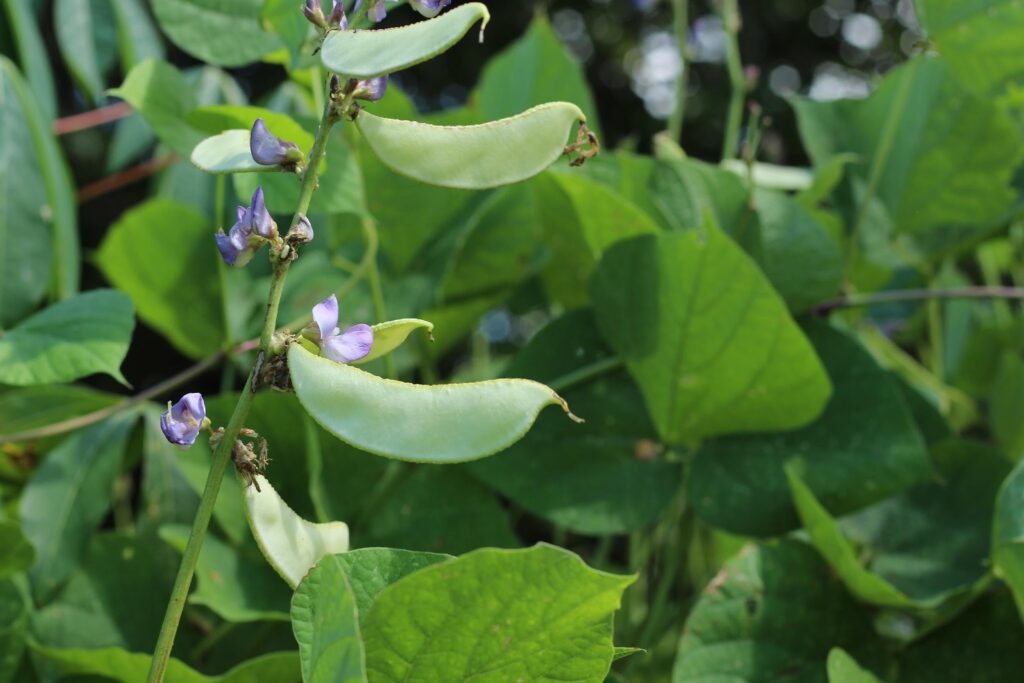As the population continues to grow, so too does the demand for food. However, climate change and other environmental factors make producing enough food to meet this demand increasingly difficult. But the lablab bean, an underappreciated (and understudied) plant, could be a climate-resilient hero of global food security, finds new research.
The lablab bean, also known as the “hyacinth bean,” is a popular crop among subsistence farmers in Africa. However, it has been largely ignored by the commercial agricultural industry. This is partly because it is an “orphan crop,” meaning it has not been the subject of extensive research or breeding programs.
Despite this lack of attention, the lablab bean has great potential. According to a recent study led by the International Livestock Research Institute (ILRI) in Kenya, the lablab bean is highly nutritious for both humans and livestock. It also grows well in diverse environments and has the ability to improve soil by fixing nitrogen.
What is the lablab bean?
“Lablab is a versatile multipurpose crop that contributes towards food, feed, nutritional and economic security, and is also rich in bioactive compounds with pharmacological potential, including against SARS-Cov2,” says the study published in Nature in April 2023.
Perhaps most importantly, the lablab bean is highly adaptable. This suggests a high level of genetic diversity, which could allow researchers to select different genotypes better suited to different environments and conditions.
ILRI’s genome map of the lablab bean has already identified possibilities for improving the crop’s nutritional value and drought resistance. Because it grows well in “the tropical and subtropical regions of Africa and Asia,” per the study, it could improve food security in these areas.
“When it comes to valuing a crop, people often focus on its global market value in U.S. dollars,” said Chris Jones, Program Leader for Feed and Forage Development at ILRI and one of the lead authors of the study. “However, for farmers who struggle to produce enough food, the value of a crop like lablab is incredibly high. Although it may be cultivated on a smaller scale compared to major crops, its impact on food security can be significant, and we need to recognize that.”
Why we should study ‘orphan’ crops
The study notes that there are many understudied crops like the lablab bean that could play a role in improving food security and climate resilience. Africa, in particular, has a rich biodiversity of plant species that are not fulfilling their full potential.
These crops, known as orphan crops, are often staple foods for subsistence farmers in developing countries. However, because they have not been the subject of extensive research or breeding programs, they have not been fully utilized.
To fully utilize these orphan crops, however, more research and investment are needed.
“Africa has rich plant biodiversity that includes 45,000 species, most of which are under-studied and many are not fulfilling their full potential,” says the study. “To fully explore these genetic resources, it is important to develop inclusive research models that enable and empower local researchers to study these species under a resource-limited research setting.”




